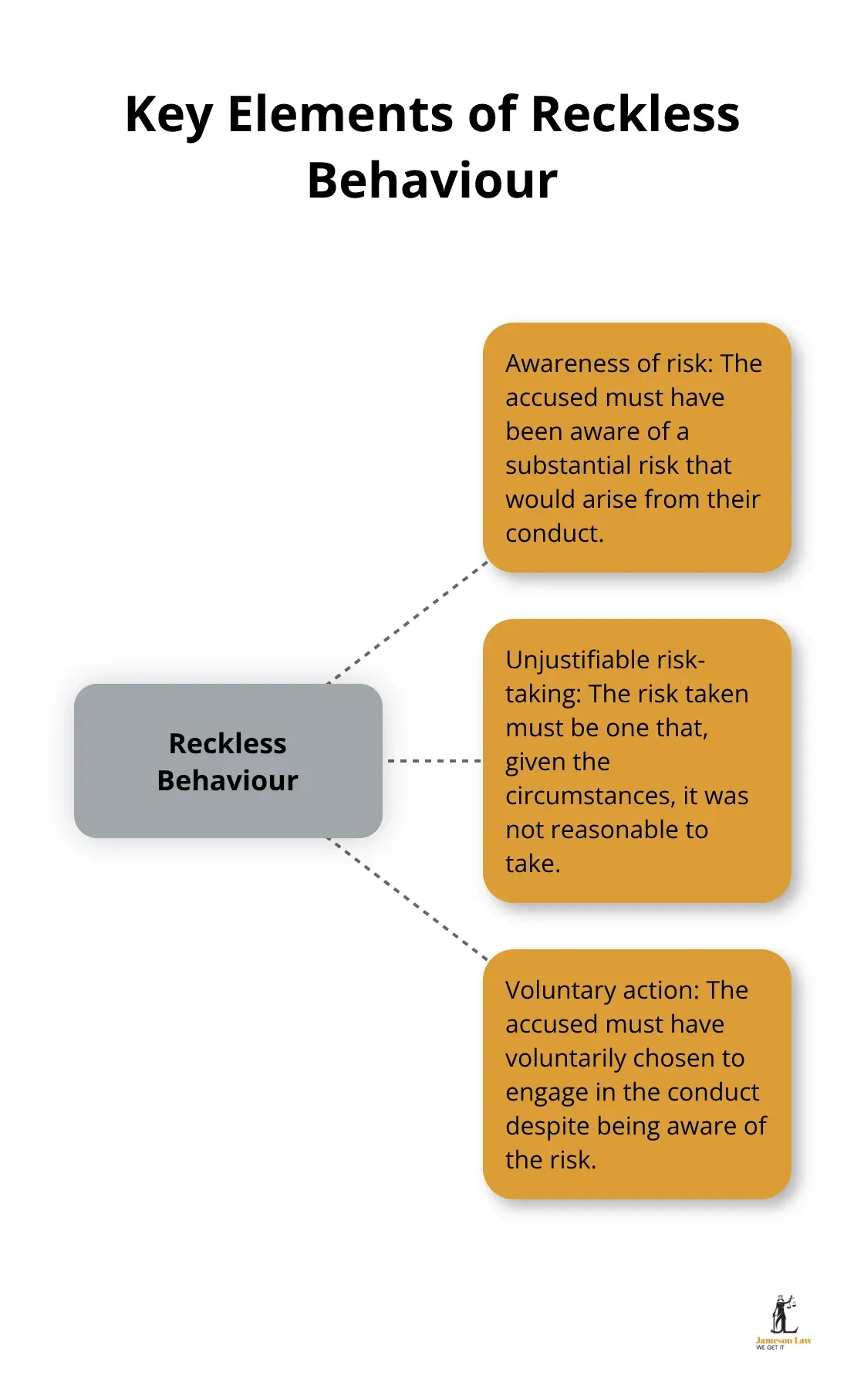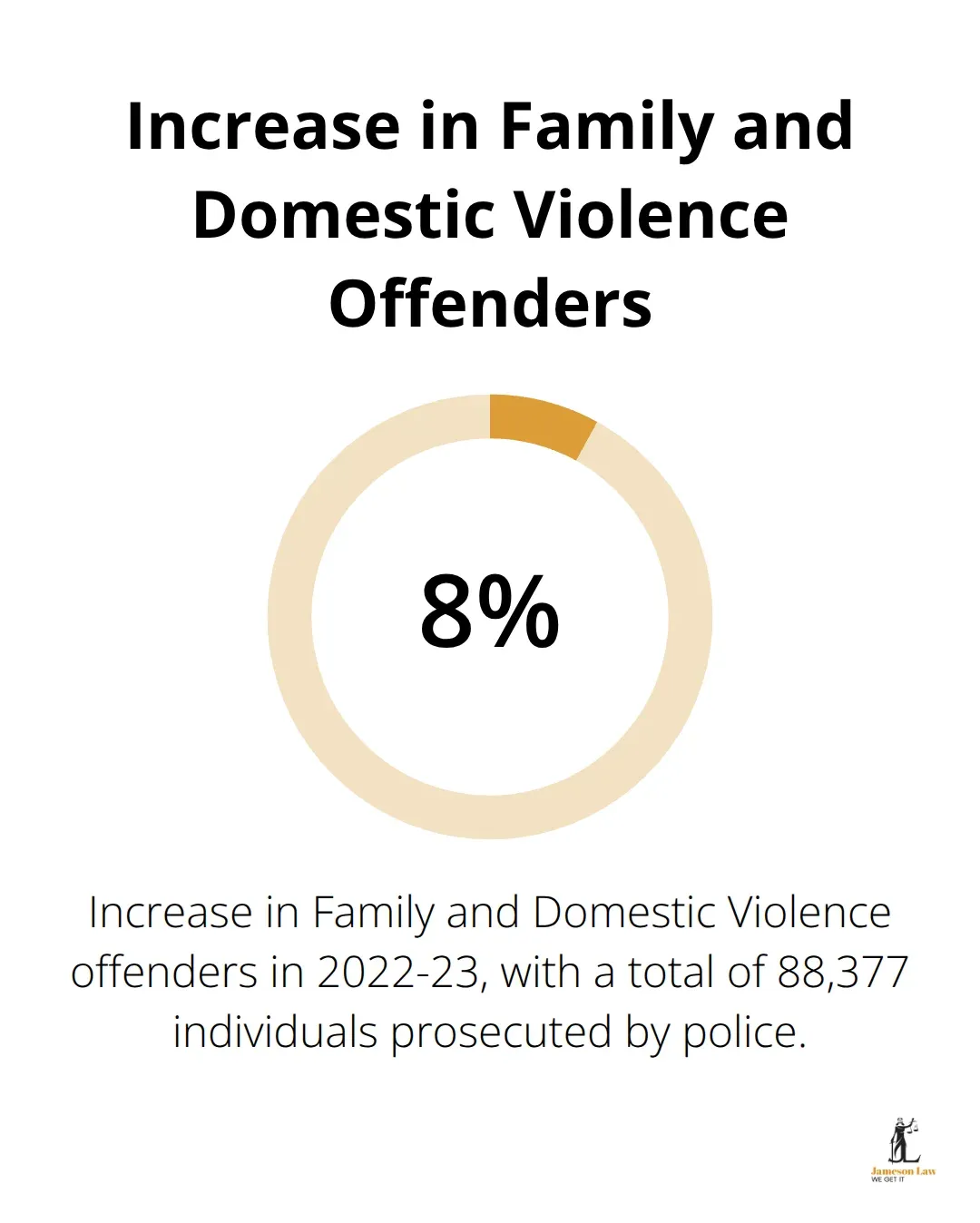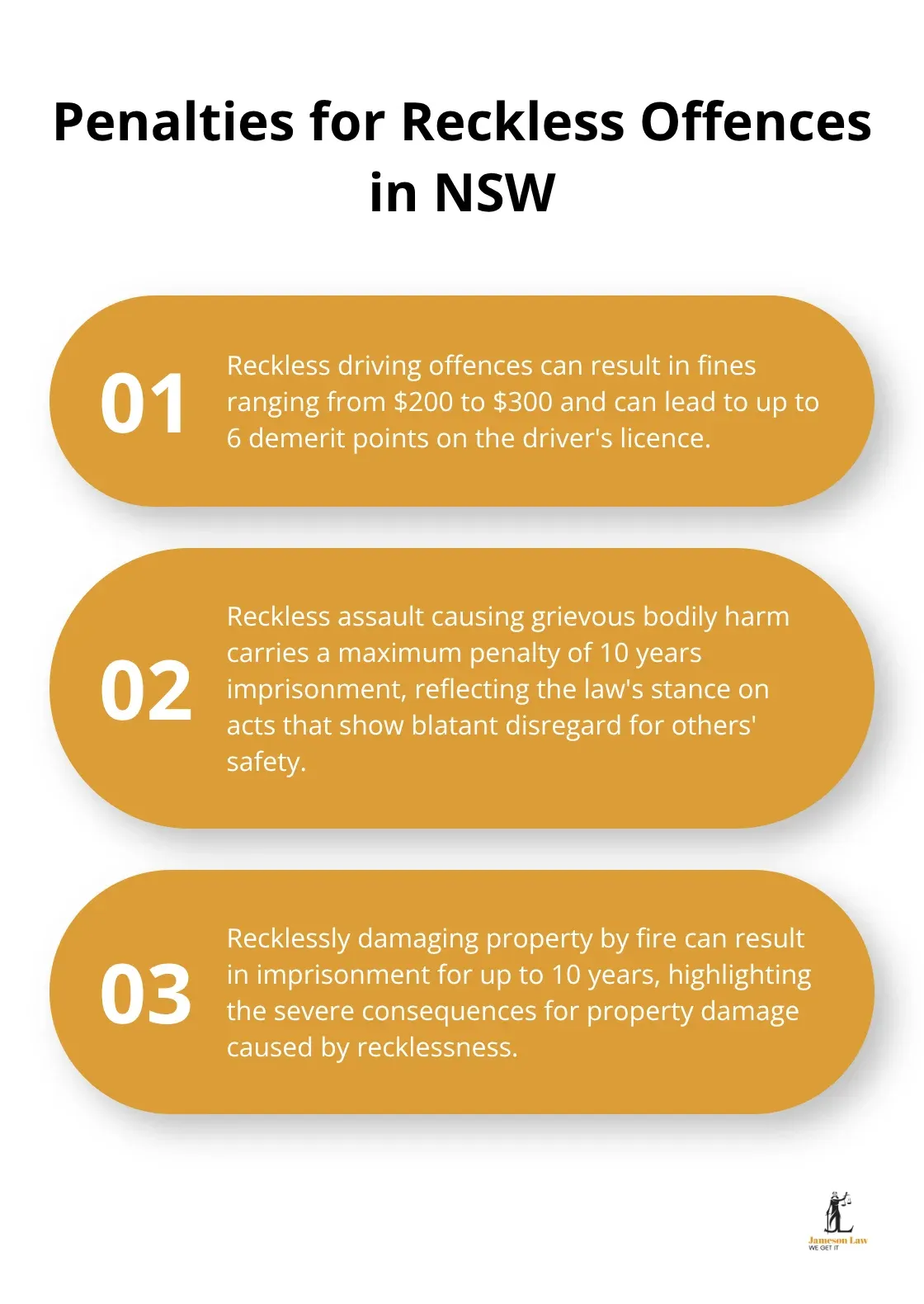Recklessness in criminal law is a complex concept that often confuses many people. It is a critical element in numerous offences, ranging from assault to property damage.
At Jameson Law, we have seen firsthand how misunderstanding this legal term can lead to serious consequences. This post breaks down the concept of recklessness, provides real-world examples, and explains its legal implications.
What Is Recklessness in Australian Criminal Law?
Legal Definition of Recklessness
Australian criminal law often describes recklessness as a conscious disregard for a substantial and unjustifiable risk that a particular outcome may occur because of one’s actions. Guidance has been provided in several higher court decisions. In R v Crabbe (1985), the court discussed foresight of the possibility of harm in the context of recklessness for statutory offences other than murder.
Definitions can vary by offence and jurisdiction. For NSW, see the Crimes Act 1900 (NSW) provisions on offences such as reckless grievous bodily harm or wounding. Our overview of criminal law in NSW explains how these concepts operate in practice.
Recklessness vs. Negligence
Both involve falling short of the required standard of care, but the culpability differs. Negligence is failing to exercise reasonable care, and the person may not be aware of the risk.
Recklessness involves conscious awareness of a substantial risk and choosing to proceed regardless. This awareness makes recklessness more serious in law than negligence.
Key Elements of Reckless Behaviour
To establish recklessness, prosecutors typically need to prove:
- Awareness of risk: the accused was aware of a substantial risk arising from their conduct.
- Unjustifiable risk-taking: taking that risk was not reasonable in the circumstances.
- Voluntary action: the accused chose to engage in the conduct despite the risk.

Understanding these elements is essential for practitioners and anyone facing criminal charges. The distinction between recklessness and other mental states can be pivotal at trial.
Evolving Legal Landscape
Some jurisdictions have reviewed how recklessness is defined and applied, reflecting an evolving legal landscape. Always check the current position in your jurisdiction. If you are unsure how recklessness applies to your situation, seek advice from a qualified criminal defence solicitor.
Now that we have covered the definition and elements, let us look at real-world examples.
Real-World Examples of Reckless Conduct
Reckless Driving: A Common Offence
Reckless driving is a frequent example. A driver travelling at very high speed and weaving through traffic may be found to have consciously disregarded a substantial risk of a serious crash. For NSW safety policy, see the Transport for NSW road safety campaigns.
Assault Cases Involving Recklessness
Recklessness can arise in assault matters. For example, pushing someone during an argument who then falls and suffers a serious injury may support a charge involving recklessness if the risk was known and disregarded. For offence trends and research, refer to BOCSAR and our guide to domestic violence offences in NSW.

Property Damage and Recklessness
Setting off fireworks in dry bushland near structures can amount to reckless destruction of property if the fire risk was obvious and disregarded. This illustrates how recklessness can apply beyond personal violence offences.
The Role of Intent in Recklessness Cases
Recklessness differs from intent. The prosecution need not prove the precise harmful outcome was intended, only that a substantial risk was known and ignored. Throwing objects off a high-rise into a busy street is a classic example of reckless endangerment.
Seeking Legal Advice for Recklessness Charges
If you face allegations involving recklessness, early advice is essential. See our resources on what to do if contacted by police, bail applications and courtroom representation.
Legal Consequences of Reckless Behaviour
Reckless conduct can carry serious consequences in NSW, including fines, imprisonment or both, depending on the offence.
Penalties for Reckless Offences in NSW
Traffic matters that involve recklessness can result in significant fines, demerit points, licence disqualification and possible imprisonment in serious cases. See NSW guidance on road rules and penalties and our page on traffic offences in NSW.
Reckless assault causing grievous bodily harm can attract lengthy terms of imprisonment. For offence definitions, refer to the Crimes Act 1900 (NSW). Sentencing outcomes depend on the facts and the legislation. You can explore sentencing resources via the Judicial Commission of NSW.
Reckless property damage, including by fire, is also treated seriously and may result in imprisonment.

Aggravating Factors in Sentencing
Courts consider factors such as prior convictions, the severity of harm and victim vulnerability. These can increase penalty severity. For general legal help, the LawAccess NSW portal provides public information.
Defences Against Recklessness Charges
Potential approaches include:
- Lack of awareness: evidence that the accused was genuinely unaware of the risk may undermine recklessness.
- Reasonable response: conduct that appears reckless may be justified by the circumstances.
- Mistaken but reasonable belief: a reasonable mistake about the situation can, in some contexts, provide a defence.
Other arguments may involve legal defences in NSW such as self-defence, necessity or mental health defences. The best strategy depends on your specific facts. Our team has experience building tailored defences in criminal matters in NSW.
Impact on Future Prospects
A conviction can affect employment, visas and travel, relationships and finances, including insurance premiums. Early advice helps manage risks and protect your future.
Final Thoughts
Recklessness involves consciously disregarding substantial risks. It appears across offences from driving to assault and property damage and can bring significant penalties.
If you are dealing with a recklessness allegation, get advice promptly. At Jameson Law, our Sydney criminal lawyers provide end-to-end support, from initial police contact and bail through to sentencing advocacy and appeals. For confidential help, call (02) 8806 0866 or book a consultation.













